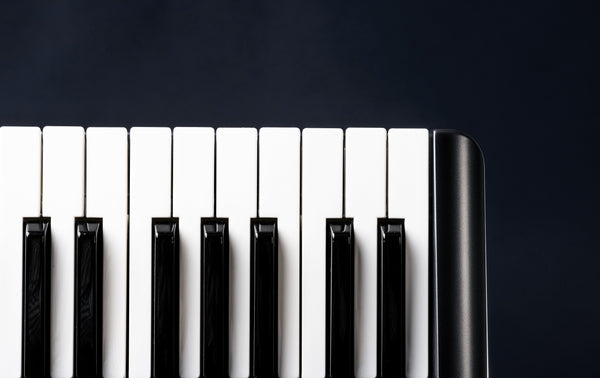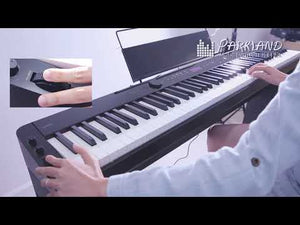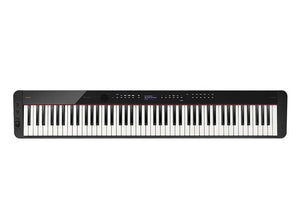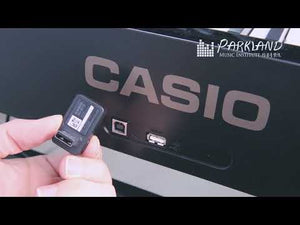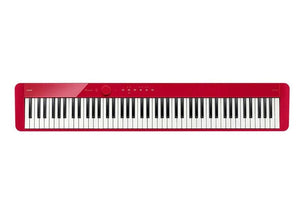Digital piano
Thanks to their smaller size and versatility, digital pianos have become a very popular option for families in Hong Kong. Aside from being more affordable than acoustic pianos, they also offer a great host of advantages, such as volume control, compatibility with headphones, background rhythms, different instrument sounds, and recording capabilities to make your learning and playing experience much more enjoyable.
Are digital pianos good for beginners?
Newer digital pianos have improved significantly when it comes to mimicking the sound, touch, and weight of keys of traditional acoustic pianos. This means that students learning on a digital piano will have a similar learning experience, plus access to a variety of perks and advantages.
From our experience of working with students in Hong Kong, digital pianos are often a better option for beginners and intermediate level students than acoustic pianos. Their multitude of tones and instrument sounds are especially beneficial for a younger student’s creative development. Tuning is not required, and volume can be controlled. Students can focus on learning and practise the piano whenever they want.
Tips on buying the right digital piano
Features, dimension, and budget are the key considerations when choosing your digital piano. Depending on your experience and skill level, one model might offer more useful functions than the other.
For absolute beginners, having built-in learning tools could be very beneficial to your learning journey. For more advanced pianists, specs such as touch response, velocity sensitivity, and recording capabilities will make a world of difference in achieving the proper sound quality and playing experience you need.
While some digital pianos are designed with home use in mind, others feature components that make them more suitable for stage and studio use. While expensive professional-studio models might guarantee better quality, their lack of built-in speakers might make them unsuitable for beginners learning at home. Pay attention to these details and remember to spend your budget on the features you need.
Digital pianos vs keyboards
While digital pianos and keyboards offer a similar host of benefits, there are a few key differences that make them very different tools for learning the piano, especially as you progress into a more advanced level.
Digital pianos generally come with 88 keys and are designed to mimic traditional acoustic pianos. They are often built upright like a traditional piano and invest a lot more intention in features such as weighted keys and tonal characteristics to present the same sort of touch, feel, and sound experienced on an acoustic piano.
Keyboards, on the other hand, are often lighter in weight and usually only have 61 or 78 keys. The keys are often semi-weighted or unweighted, making them easier for smaller hands to play and a viable option for younger students.
Ready to buy your first digital piano online? Take a look at these great options we offer and don’t hesitate to get in touch with us if you have any questions!
